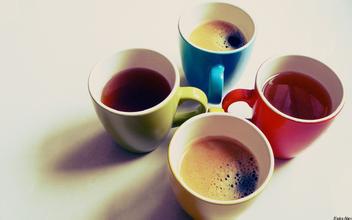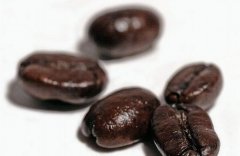What should the elderly pay attention to when drinking coffee?

Coffee contains caffeine, after drinking can make people cheer up, eliminate fatigue, improve brain activity, and can increase appetite, promote digestion and so on. Regular moderate drinking of coffee, but also weight loss, improve exercise ability, improve learning efficiency and other effects. However, if the elderly drink coffee improperly, it can also adversely affect their health. Therefore, the following points should be noted:
1, the elderly drink coffee, should not be too strong. Espresso coffee can speed up the heartbeat, causing premature beats, arrhythmia and excessive excitement, insomnia, etc., thus affecting rest and recovery of physical strength. No coffee at night.
2, suffering from arteriosclerosis, high blood pressure, heart disease elderly, it is best not to drink coffee. American scientists have shown that patients with heart disease drink an average of 1 to 5 cups of coffee a day, and the chance of myocardial infarction increases by about 50% compared to those who do not drink coffee; those who drink more than 6 cups a day on average, their chances of onset are doubled.
Japanese scholars have also proved that coffee drinkers, 2 hours after meals, their blood free fatty acids increased, while blood sugar, lactic acid, pyruvate are also elevated, this is because caffeine has the effect of hyperlipidemia.
Elderly people with ulcers should not drink coffee. Because coffee has the effect of stimulating gastric acid secretion, and gastric acid can cause the aggravation of ulcer disease, leading to pain, bleeding and so on.
4. Elderly people who often drink coffee should pay attention to calcium supplementation. It has been determined that drinking 2 cups of coffee will lose 15 mg of calcium. Therefore, the researchers pointed out that adults who often drink coffee need to supplement 100 mg of calcium per day, or drink 1 to 2 cups of milk, and can also eat calcium-rich foods such as beans, daylily, sesame paste, shrimp skin, kelp, etc. to compensate for the calcium loss caused by drinking coffee.
Elderly people with drinking habits should not drink coffee after drinking, because caffeine can increase the damage caused by alcohol. Drinking coffee is bad for your health.
Elderly people with diabetes should not drink sugar when drinking coffee.
Important Notice :
前街咖啡 FrontStreet Coffee has moved to new addredd:
FrontStreet Coffee Address: 315,Donghua East Road,GuangZhou
Tel:020 38364473
- Prev

Coffee cups are very important. Drinking coffee with enamel cups is harmful to your health.
The US Food and Drug Administration recently warned that lead in diet may come from enamel utensils and that drinking acidic drinks such as coffee and orange juice from enamel cups is harmful to health. In addition, chromium, tin, bismuth and antimony in enamel are all toxic metals, which are very harmful to human health.
- Next

It is appropriate to drink two to three cups of coffee a day.
Coffee contains caffeine, which excites the sympathetic nerves after entering the body, thus eliminating drowsiness, improving blood circulation, and the body also feels warm and does not feel tired, so it has a refreshing effect. However, when the sympathetic nerve is stimulated and excited, it has a negative effect on appetite, that is, appetite will be reduced, so drinking coffee before a meal will not want to eat. In addition, due to irritation of the stomach
Related
- Beginners will see the "Coffee pull flower" guide!
- What is the difference between ice blog purified milk and ordinary milk coffee?
- Why is the Philippines the largest producer of crops in Liberia?
- For coffee extraction, should the fine powder be retained?
- How does extracted espresso fill pressed powder? How much strength does it take to press the powder?
- How to make jasmine cold extract coffee? Is the jasmine + latte good?
- Will this little toy really make the coffee taste better? How does Lily Drip affect coffee extraction?
- Will the action of slapping the filter cup also affect coffee extraction?
- What's the difference between powder-to-water ratio and powder-to-liquid ratio?
- What is the Ethiopian local species? What does it have to do with Heirloom native species?

